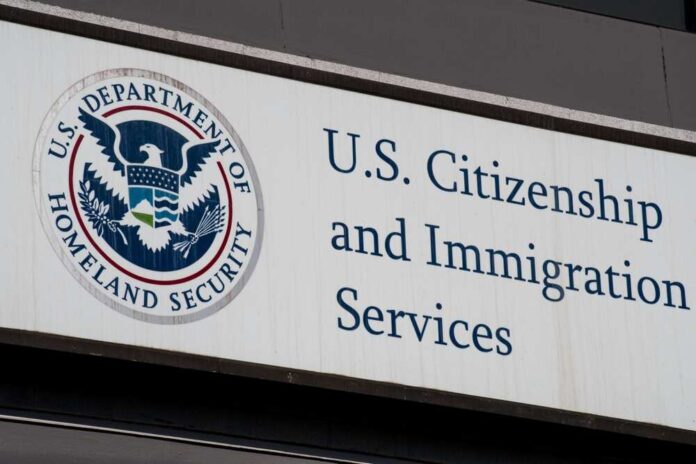
Vice President Kamala Harris, in a stunning reversal, now pledges to spend hundreds of millions on a border wall she previously denounced as “un-American.”
In her recent speech, Vice President Kamala Harris lambasted Donald Trump’s immigration policies, claiming they worsened the crisis at the U.S.-Mexico border. Yet, her newfound support for a border wall contrasts sharply with her previous stances and has ignited a fierce debate about the shifting landscape of U.S. immigration policy.
Vice President Harris, who once criticized the border wall as a “complete waste of taxpayer money,” now supports a bipartisan bill allocating up to $650 million for its construction. This about-face is seen by many as a reaction to criticisms from Trump’s campaign trail, marking a significant shift in her immigration policy approach.
The bipartisan bill Harris endorses reallocates unused funds for wall construction, adhering to the standards established during Trump’s administration. It caps spending at $650 million, a stark contrast to the $18 billion Trump initially requested in 2018. The bill also includes provisions to fund additional asylum lawyers and judges and grants the president authority to shut down the border if migrant crossings exceed 5,000 per day.
“If she’s elected president, Kamala Harris pledges to spend hundreds of millions of dollars on the wall along the southern border — a project she once opposed and called ‘un-American’ during the Trump administration.”
Key Republicans, such as Senator James Lankford, expressed surprise at Harris’s support for the measure, noting her previous lack of involvement in border security negotiations. “It requires the Trump border wall,” Lankford stated, emphasizing the bill’s adherence to Trump-era standards.
Harris’s flip-flop has not gone unnoticed. Republicans accuse her of pandering to right-wing sentiment while trying to distance herself from Trump’s more draconian measures, such as family separation policies and mass deportations. Despite her campaign’s attempts to position her as an immigration hardliner, critics argue that her inconsistent stance highlights a lack of genuine commitment to any coherent policy.
“In declaring her candidacy in her first run for president in 2019, Harris called the wall Trump’s ‘medieval vanity project’ that wasn’t going to stop transnational gangs from entering the U.S.”
Adding further complexity, Harris introduced legislation against family separation and questioned immigration officials on migrant deaths. Her role as “border czar” under the Biden administration has drawn intense scrutiny, with House Republicans condemning her handling of border policy.
The shifting sands of Harris’s immigration policy denote the broader influence of Trump’s tenure on current political discourse. While she continues to oppose certain draconian measures of the Trump era, her current support for the wall reflects a calculated political maneuver to appease a broader constituency. Whether this will convince the American public or merely reinforce allegations of political opportunism remains to be seen.
“the largest invasion in history is now taking place at our southern border.”
The debate is far from over, and as it unfolds, the consequences for U.S. immigration policy, national security, and international relations will undoubtedly be profound. One thing is certain: the irony of Harris’s pivot has only just begun to surface.














